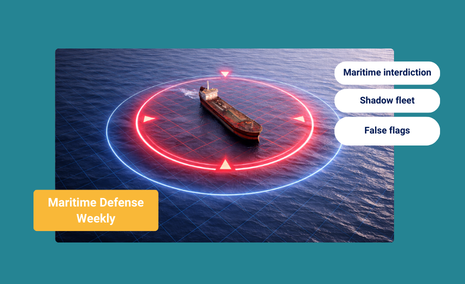
AI in the Supply Chain
What is AI in the Supply Chain?
AI in the supply chain refers to the integration of AI technologies into supply chain management to enhance efficiency, decision-making, and overall operations. AI enables companies to analyze large amounts of data, automate processes, and make predictions, ultimately creating smarter, more resilient supply chains.
Where Does Gen AI Add Value to the Supply Chain?
Enhanced demand forecasting:
- Analyzes historical data, market trends, and external factors for accurate demand predictions
- Simulates scenarios to prepare for demand fluctuations, reducing stockouts and overstocking
Intelligent inventory management:
- Generates insights on optimal stock levels and replenishment schedules
- Recommends alternative sourcing strategies during disruptions to improve resilience
Smarter procurement:
- Analyzes supplier performance, pricing trends, and risk factors for informed supplier selection
- Automates tasks like contract generation and communications to streamline procurement
Optimized logistics and routing:
- Uses data like traffic updates and weather forecasts to suggest efficient transportation routes
- Reduces delivery times, costs, and environmental impact
Proactive risk management:
- Identifies potential disruptions (e.g., supplier delays or geopolitical issues) from data patterns
- Suggests mitigation strategies to ensure supply chain continuity
Real-time collaboration:
- Generates actionable insights to improve communication between stakeholders
- Summarizes complex data into clear reports for better transparency
Personalized customer experiences:
- Recommends tailored solutions, such as delivery options or restock predictions
- Enhances customer satisfaction and builds loyalty
Automating repetitive tasks:
- Creates documents like invoices, shipping labels, and compliance reports
- Supports customer service by generating responses, and reducing resolution times

How Can Companies Prevent Supply Chain Disruptions with AI?
AI is revolutionizing supply chain management by making disruptions manageable. With advanced technologies, businesses can anticipate, mitigate, and respond to risks with greater precision and agility.
A major advantage of AI lies in predictive analytics, which analyzes historical data, market trends, and external factors like weather to forecast demand fluctuations and identify risks such as port congestion or geopolitical instability. This foresight enables proactive measures that help avoid costly delays.
Another key benefit is real-time supply chain visibility. AI-powered platforms provide end-to-end tracking, offering dynamic ETAs and updates on shipments. This transparency keeps stakeholders informed and ready to address disruptions caused by delays, weather, or other unforeseen issues.
AI also streamlines operations by optimizing processes like route planning and inventory management. By assessing variables such as fuel costs, transit times, and demand, AI recommends efficient shipping routes while maintaining balanced stock levels to prevent overstocking or shortages.
Supplier collaboration improves with AI tools that evaluate supplier performance and reliability. Scenario modeling helps businesses prepare for potential disruptions, such as delays or bottlenecks, ensuring quick and effective responses.
Automation further enhances efficiency. Tasks like customs clearance and compliance are streamlined, reducing manual input and errors. Automated alerts notify stakeholders of emerging issues, enabling swift interventions to minimize delays.
AI also supports sustainability efforts by optimizing routes to reduce emissions and consolidating shipments to lower environmental impact. Predictive models guide greener decision-making, aligning with long-term sustainability goals.
By integrating AI into their supply chains, companies not only prevent disruptions but also gain resilience, agility, and efficiency, giving them a competitive edge in today’s dynamic global market.
How Can AI Help Build Resilient Supply Chains?
AI is a cornerstone for achieving supply chain resilience, enhancing agility and operational efficiency in the face of uncertainty.
Predictive capabilities enable businesses to proactively plan for disruptions by analyzing historical data and external factors like weather or geopolitical events. These insights help mitigate risks and ensure readiness for unforeseen changes.
With real-time visibility, AI-powered tools provide end-to-end tracking across the supply chain. Early detection of bottlenecks or delays allows businesses to reroute shipments or adjust schedules, maintaining continuity and meeting customer expectations.
AI also excels in risk mitigation by monitoring variables like port congestion and supplier reliability. By offering actionable insights, it empowers businesses to diversify suppliers or modify shipping routes, ensuring stability during disruptions.
Dynamic decision-making is another strength of AI. Scenario simulations optimize strategies by evaluating time and cost implications of potential adjustments, enabling informed responses to crises.
AI also enhances supplier management by identifying underperforming partners and automating repetitive tasks like order processing. This reduces errors, increases efficiency, and frees up resources for strategic initiatives.
In times of crisis, such as natural disasters or trade disputes, AI helps companies swiftly adapt by identifying alternative routes or suppliers. For example, AI can predict port congestion and recommend alternative paths, avoiding costly delays.
By leveraging AI, businesses build supply chains that are not only resilient but also adaptive, efficient, and competitive. AI empowers organizations to navigate disruptions with confidence and thrive in a rapidly evolving global market.










